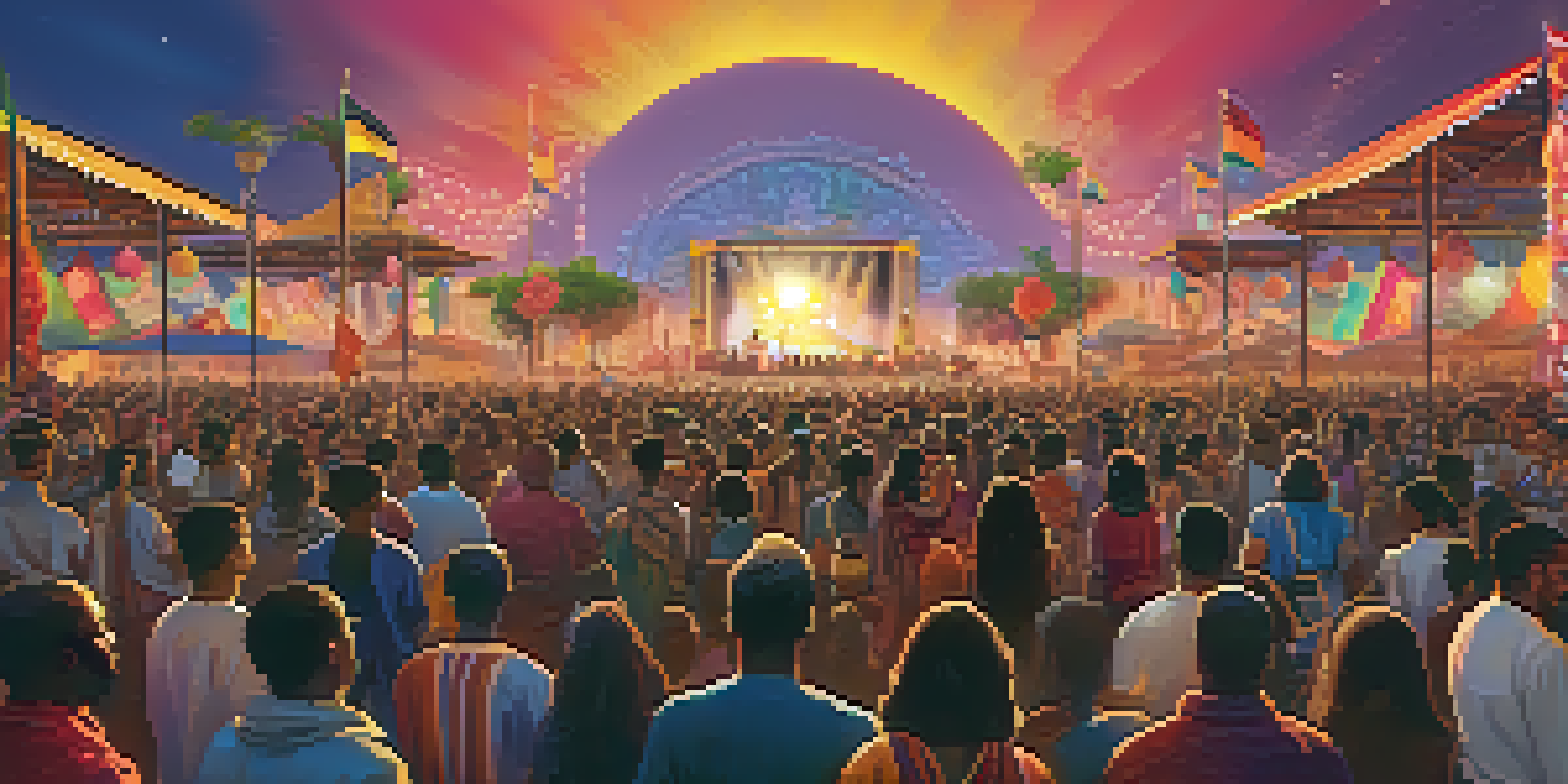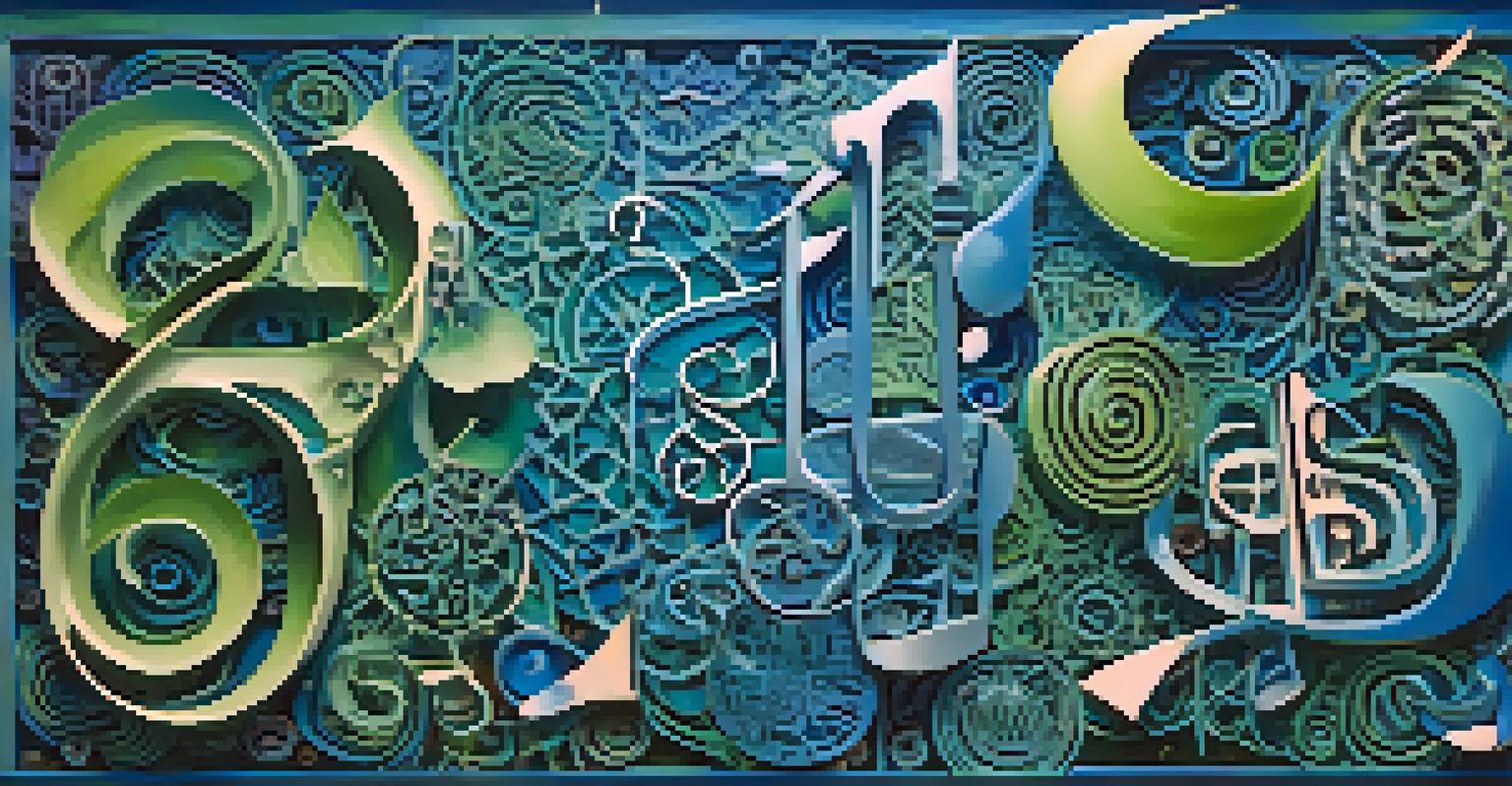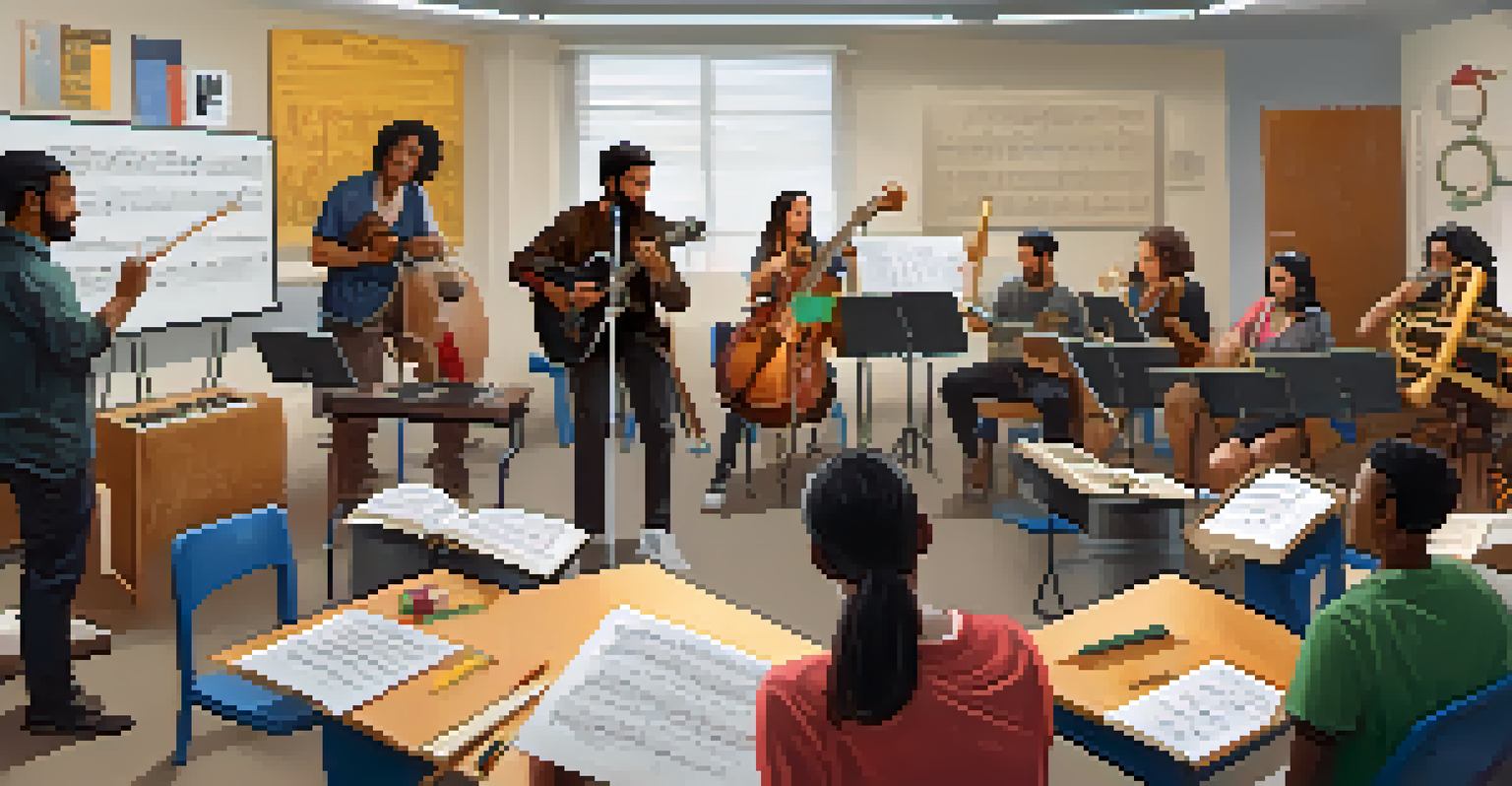The Future of Cultural Appropriation in Music: Trends to Watch

Understanding Cultural Appropriation in Music Today
Cultural appropriation in music refers to the adoption of elements from one culture by artists from another, often without permission or understanding. This practice can lead to a complex interplay of admiration and exploitation, where the original culture may feel marginalized. As global connectivity increases, artists must navigate these waters carefully to maintain respect and authenticity.
Cultural appropriation is often a way of borrowing that disregards the context and meaning behind cultural elements.
For instance, when a pop artist incorporates traditional sounds from Indigenous cultures, it's crucial to acknowledge the source and its significance. This growing awareness is leading to more conversations about what constitutes respectful borrowing versus harmful appropriation. The lines are often blurry, making it essential for both artists and audiences to engage in dialogue.
As we move forward, understanding the nuances of cultural appropriation will be key. The music industry is gradually shifting towards a more inclusive model, where artists collaborate across cultures, ensuring that credit and respect are given where it's due. This evolution could reshape how we define and perceive cultural exchange in music.
Emerging Trends in Musical Collaboration
One significant trend is the rise of collaborative projects between artists of different cultural backgrounds. These partnerships are often more than just musical fusions; they celebrate and elevate the cultural roots of each participant. For example, artists like Bad Bunny and Rosalia have successfully blended genres while honoring their respective cultural influences.

This collaborative approach not only enriches the music but also educates fans about diverse cultural heritages. By working together, artists can create a dialogue that fosters understanding and respect, rather than appropriation. Such collaborations highlight the beauty of cultural exchange while minimizing the risk of exploitation.
Cultural Sensitivity in Music Matters
Artists must navigate cultural appropriation carefully to ensure respect and authenticity in their work.
As this trend continues, we can expect to see more artists actively seek out collaborations that prioritize authenticity and respect. This shift may lead to a new genre of music that is not only diverse but also deeply rooted in shared cultural experiences. It's an exciting time for those who appreciate music as a global language.
The Role of Social Media in Cultural Awareness
Social media platforms have become powerful tools for raising awareness about cultural appropriation. Artists and fans alike use these platforms to discuss and critique instances of appropriation, often sparking broader conversations. This increased visibility can pressure artists to be more mindful of their cultural influences.
Music is the universal language of mankind, but it can also be a language of misunderstanding when cultures collide.
For example, when a popular artist faces backlash for appropriating a cultural element, it can lead to a public discussion that encourages them to rethink their approach. Social media thus serves as a double-edged sword, amplifying both appreciation and criticism of cultural practices in music. It's a space where voices from marginalized communities can be heard and validated.
Looking ahead, we can anticipate a continued rise in accountability as artists navigate their cultural influences in the digital age. Social media will likely play a crucial role in shaping these discussions, empowering fans to hold artists accountable for their choices. This evolution could lead to a more ethically aware music industry, where cultural sensitivity is prioritized.
The Impact of Education on Cultural Sensitivity
Education plays a critical role in fostering cultural sensitivity among artists. As music programs and institutions become more aware of the implications of cultural appropriation, they are beginning to incorporate lessons on cultural respect into their curricula. This shift helps aspiring musicians understand the importance of context and history behind the music they create.
Furthermore, workshops and panels on cultural appropriation are becoming common in music festivals and conferences. These events invite artists to learn from cultural leaders and community members, promoting respectful engagement with diverse musical traditions. By prioritizing education, the industry can cultivate a generation of artists who are more conscious of their cultural impact.
Collaboration Enhances Cultural Exchange
Collaborative projects between artists of diverse backgrounds celebrate cultural roots and foster understanding.
As we look to the future, education will be paramount in shaping how artists approach cultural influences in their work. A well-informed artist can create music that not only entertains but also honors the cultures from which they draw inspiration. This proactive approach could significantly reduce instances of appropriation in the industry.
The Influence of Globalization on Music Trends
Globalization has changed the way we consume music, leading to a fusion of sounds and styles from around the world. While this can lead to exciting musical innovations, it also poses challenges related to cultural appropriation. As artists blend genres from different cultures, the risk of oversimplifying or misrepresenting those cultures increases.
For example, K-pop has gained immense popularity worldwide, drawing on various cultural elements. However, discussions about cultural appropriation arise when artists fail to acknowledge their influences adequately. This highlights the need for artists to approach globalization thoughtfully, ensuring they respect the cultural significance of the sounds they incorporate.
As we navigate this era of global music exchange, artists must be intentional about their choices. They can leverage globalization to celebrate diversity while being mindful of the potential pitfalls of cultural appropriation. The challenge lies in balancing innovation with respect, and this balance will shape the future of music.
The Role of Labels in Promoting Cultural Sensitivity
Music labels play a significant role in either perpetuating or combating cultural appropriation in the industry. As gatekeepers, they have the power to influence an artist's image and sound, making it vital for them to prioritize cultural sensitivity in their marketing strategies. This responsibility includes ensuring that artists understand and respect the cultures they draw inspiration from.
In recent years, some labels have begun to implement guidelines that encourage artists to engage with cultural experts and communities. This proactive approach can lead to more authentic representations of culture in music. Labels that promote inclusivity not only enhance their artists' credibility but also contribute to a more respectful music landscape.
Education Drives Cultural Awareness
Incorporating lessons on cultural respect in music education can help artists create music that honors their influences.
As the push for cultural sensitivity grows, we can expect labels to take a more active role in shaping their artists' understanding of cultural issues. This shift may lead to a more thoughtful approach to music production and marketing, ultimately benefiting both artists and audiences. Labels that embrace this change could set new standards for ethical practices in the industry.
Looking Ahead: The Future of Cultural Exchange in Music
The future of cultural exchange in music is poised for transformation as artists, fans, and industry leaders become more aware of cultural appropriation. As conversations around this topic evolve, we may see a shift towards more genuine collaborations that celebrate cultural diversity. This could lead to the emergence of new genres that blend influences while respecting their origins.
Moreover, the ongoing discussions about cultural appropriation may inspire artists to take a more activist approach, using their platforms to advocate for cultural understanding and appreciation. By championing the voices of marginalized communities, musicians can create a more inclusive music scene that honors diverse perspectives. This collaborative spirit fosters unity and respect in a world that often feels divided.

Ultimately, the future of cultural exchange in music will hinge on a collective commitment to understanding and respecting cultural nuances. As the industry continues to evolve, we can look forward to a landscape where cultural appreciation thrives, and the music we enjoy reflects the rich tapestry of human experience. Together, we can create a future where music serves as a bridge between cultures, rather than a barrier.